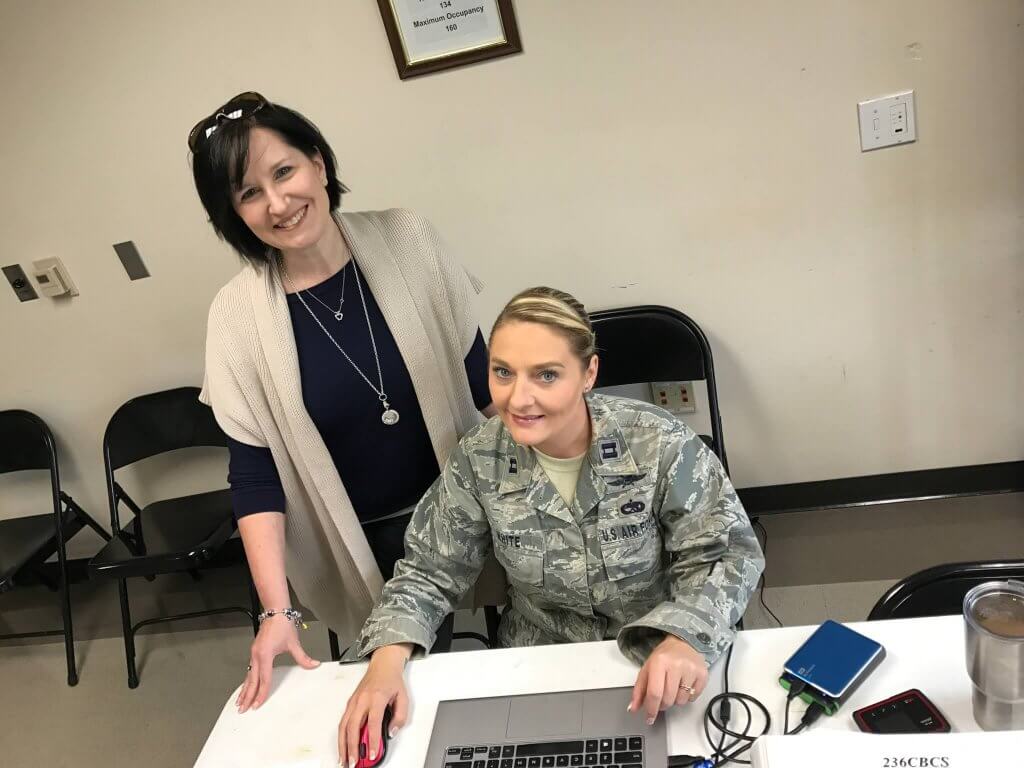Younger veterans continue to face an increased rate of joblessness when compared with peers who served in previous eras.
A newly released Bureau of Labor Statistics report showed an ongoing trend of Post-9/11 military job seekers with a higher rate of unemployment than older generations of veterans. There has been a collaborative effort by organizations and companies to address this issue through the expansion of services. Programs include a more diversified offering that aligns with the range of careers transitioning service members are exploring.
Employment programs for Guardsmen and Reservists
One such program, the National Guard Employment Network, focuses specifically on Guardsmen. Launched by Corporate America Supports You – a nonprofit organization supporting transitioning military members and veterans through their employment search, it was established to connect the National Guard Bureau, job seekers, and employers. By mid-2017, 1197 applicants had been placed into jobs, according to the organization’s website.
NGEN Program Manager Danielle Trosclair says she hears common issues among those who connect to the program, which may shed light on the problems being faced by veterans overall. Some of which include equating military experience to civilian jargon.
“One of the kind of things I hear a lot is being able to effectively translate their skillsets. So, for a military job seeker, being able to effectively put on their resume what it is they do in their military capacity,” Trosclair said. “I had someone who submitted to a job and they were not selected because they did not have program management experience – that PMP skillset listed on the resume. However, in his military career he ran teams – he was a team chief – so he does have program management experience, but it was not properly translated on his resume.”
Trosclair, who also volunteers with the Louisiana National Guard, says there are various free certifications that can assist applicants with standing out during the hiring process. Some of her recommendations are:
- Project Management (offered by Onward to Opportunity)
- Six Sigma (offered by Onward to Opportunity)
- Ethical Hacker (offered by FEDVTE))
A full listing of Onward to Opportunity’s course offerings can be found at https://ivmf.syracuse.edu/onward-to-opportunity/course-offerings.
In addition to providing resume guidance, NGEN walks applicants through all stages of the employment process through mock interviews, professional development training, and tips on conducting a targeted employment search.
“It’s that total package of prepping them for their civilian job search,” she added.
Specialized training for veterans
Along with the existing programming offered by veteran service organizations, partnerships have allowed them to work hand-in-hand with companies that have specialized resources. For example, in 2014 IBM and CASY teamed up to create the Veteran Accelerator Program. This provides cybersecurity and data analytics training through an intensive five-day workshop. It is held at locations around the country yearlong, which recently included a course with the West Virginia National Guard.
This program is a no-cost service and is open to all veterans. Click here for the full list of upcoming live training.
Veteran entrepreneurship
There is no question that the network of support for employment goals continues to grow. The Institute of Veteran and Military Families is among those cohorts that have stepped up to create programming adapted to the needs of the transitioning Post-9/11 service member, then went a step further to include families.
Senior Director for Research and Evaluation, Dr. Nicholas Armstrong, has worked with IVMF for the last three years. His department’s research helps guide policy and program development. He says one of challenges is getting the resources in front of service members ahead of their exit from the military so they don’t get lost in the sea of goodwill of different opportunities.
“This kind of ties back to the broader employment picture of — a part of the challenge with transition, in general, is helping transitioning service members, whether they’re first term enlistees or folks retiring after 25-30 years, understand what the job picture looks like, what is available to them, and actually helping them become informed consumers about what the opportunities are,” he said. “Whether it’s going back to get a job, whether it’s just entering the workforce, going back to get a degree, license, or credential, or starting a business and launching a new venture, it’s helping provide that information before the point of transition, as opposed to waiting until they get out.”
Within the vast network of resources is entrepreneurship education as veterans are exploring self-employment as a post-military career. Currently, there are 2.5 million veteran-owned businesses within the U.S., representing 9.1 percent of all American businesses, according to IVMF’s “The State of Veteran Entrepreneurship Research.
As more veterans choose this path, more initiatives are born to address this topic as well. The Small Business Administration now works with the Department of Defense’s TAP program to create curriculum for Boots to Business, a two-day entrepreneurship course.
Dr. Armstrong shared that while the decision to pursue small business ownership is specific to each individual, veterans do tend to be over indexed when compared to non-veterans in entrepreneurship.
“… clearly there’s something to it in terms of those who choose military service, have that military experience, then decide that they want to pursue a business venture,” he said. “Which is really a reflection of being able to exercise that freedom to go after their dreams.”
IVMF offers several entrepreneurcentric programs, such as:
- Veteran Women Igniting the Spirit of Entrepreneurship (V-WISE)
- Entrepreneurship Bootcamp for Veterans with Disabilities (EBV)
- Entrepreneurship Bootcamp for Veterans’ Families (EBV-F)

